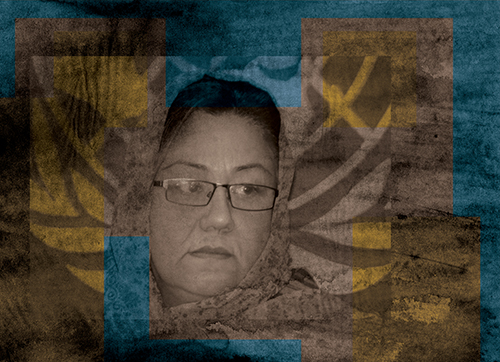Nilab Mobarez, spokeswoman for the UN Assistance Mission in Afghanistan (UNAMA), has 23 years of work experience in Kabul and France. She is also a surgeon and a professor at the medical school of Kabul.
What are the important achievements since the fall of the Taliban in Afghanistan?
Following the first Bonn Conference, the government was restructured and emergency and constitutional Loya Jirgas were convened. Other important developments were holding elections and establishing the government. There has also been remarkable progress concerning women’s rights. The passage of the Constitution, which is one of the most progressive laws in the region, is significant, particularly its article 22 guaranteeing the quality of men and women. The promotion of freedom of speech is another important achievement.
What gives you hope for the future?
I am inspired by the general feeling of hope for the future that I perceive among women, men and the young people of Afghanistan. They are staying away from the culture of war and are interested in peace. They think about reconstructing their homeland. Also, the children going back to school and the long queues of schoolgirls in black uniforms and white chadors give me hope for the future. It makes me believe that there will be people to defend my rights when I am old.
What do you fear most today?
Alongside the security transition, we are witnessing a political transition through the holding of elections, and an economic transition. I hope that women’s rights will not be harmed in these processes. In particular, the women’s share of aid must not be reduced in the course of the economic transition and there needs to be a strong political will to see an increased role for women in the future political transition of the government.
What are the biggest challenges facing Afghanistan?
The most important challenge is poverty. Eradicating poverty would solve many of our problems. The absence of the rule of law, which guarantees the rights of the citizens, is another major challenge. We have a long way to go to establish the rule of law. At present, we notice mainly the rule of informal justice. Unfortunately, even the police refer cases to such informal courts and jirgas. At UNAMA, we are consistently asking the government of Afghanistan to establish the rule of law. UNAMA’s Mr Ian Kubisch has appealed to the government of Afghanistan about the rule of law on numerous occasions.
Is it possible that girls could once again be banned from schools and women excluded from social participation, as was the case under the Taliban rule?
Even at that time, the people of Afghanistan did not want the schools to be closed. They fought against it by establishing underground schools. 12 years later, a new generation has emerged that is aware of the importance of knowledge. This generation believes in peace based on the Constitution that is a covenant between the people of Afghanistan. We demand the implementation of and respect for the Constitution.
What deterrent factors face women’s participation in social, economic, political and cultural spheres?
Women are often deprived of their rights because the men in their family do not feel secure. For example, men prevent the female members of their family from going to school and working. This situation prevails in all the cities of Afghanistan. Rather than trying to establish security, the men restrict women. The insecurity they feel might not even be real, but it creates some kind of psychological insecurity in women nonetheless.
Another challenge is the way that some young men behave in harassing women. This leads to a kind of self-restriction amongst women; they are not even interested in leaving the house or working because they don’t want to be harassed. Young Afghan girls have started to establish groups to combat this problem.
Unfortunately, families have forgotten their pedagogic role and leave that responsibility to the schools. They are not speaking out and naming the inappropriate behaviour the boys are engaging in as violence. This has established a cycle of violence in the country. The predominance of men in the structure of society and women’s comparatively lower level of knowledge and understanding of their civic rights are other factors which deter full participation by women.
What do women want?
Most importantly, they want to protect the achievements of the past 12 years, in particular the existing Constitution. They want to see an equal presence for women in the peace and reconciliation processes based on the covenants signed by the government. Furthermore, they want economic, human, social and political security for women to enable them to enjoy equal rights in society.
Which sources and centres can be relied upon to promote women’s rights and demands?
The civil society institutions, the laws, and the international community.
What have you done in your personal and professional life to fight against discrimination?
The UN Human Rights Unit is in charge of reporting on women in Afghanistan. Other sections of the United Nations have also prioritised women’s issues in their work.
“Unveiling Afghanistan, the Unheard Voices of Progress” is a campaign by Armanshahr and FIDH, which explores views held by Afghan civil society actors. Over 50 days, 50 influential social, political, and cultural actors hope to spark conversation and debate about building a society that is inclusive of women’s and human rights in Afghanistan.
Follow 50 interviews drawn from the “Unveiling Afghanistan campaign” daily on the Huffington Post. Follow Unveiling Afghanistan on FIDH Twitter: www.twitter.com/fidh_en


